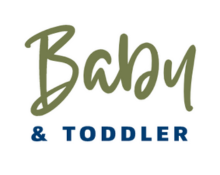
Engorgement is a common condition that occurs when your breasts become overly full and swollen with milk. It typically happens in the early days or weeks of breastfeeding when your milk supply is still adjusting to your baby’s needs. Here are some tips to help alleviate engorgement:
Breastfeed frequently: Breastfeed your baby frequently, aiming for at least 8 to 12 feedings in 24 hours. By feeding your baby on demand, you will help to relieve the pressure and fullness in your breasts. Try to empty one breast fully before switching to the other to ensure effective milk removal.
Ensure a proper latch: Ensure that your baby is latching onto the breast properly, as a shallow latch can contribute to inadequate milk removal and exacerbate engorgement. Make sure your baby’s mouth covers a large portion of the areola, not just the nipple, to ensure effective milk transfer.
Express milk: If your breasts are overly full and your baby is having difficulty latching, you can express a small amount of milk by hand or using a breast pump to soften the breast and facilitate latch. Expressing just enough milk to soften the breast can make it easier for your baby to latch and nurse effectively.
Apply warm compresses: Applying warm compresses or taking a warm shower before breastfeeding can help stimulate milk flow and provide some relief from engorgement. The warmth can also help soften the breast tissue, making it easier for your baby to latch and remove milk.
Cold compresses after feeding: After breastfeeding, applying a cold compress, such as a cold pack or a bag of frozen peas wrapped in a cloth, can help reduce swelling and provide relief from discomfort. Use it for about 15 minutes at a time and avoid applying ice directly to the skin.
Hand expression or pumping: If your baby is not able to effectively empty your breasts, you can use hand expression or a breast pump to remove some milk after feedings. This can help relieve engorgement and maintain milk supply. Be cautious not to over-pump, as this can signal your body to produce more milk and potentially worsen engorgement.
Comfort measures: Wear a supportive but not overly tight bra. Applying cabbage leaves to your breasts can also provide some relief from engorgement. Place chilled cabbage leaves directly on your breasts for about 20 minutes, then remove them and discard.
If engorgement persists or becomes severe, or if you experience symptoms such as fever, intense pain, or redness, it is important to consult with a healthcare professional or a lactation consultant. They can assess your situation and provide further guidance or support.
